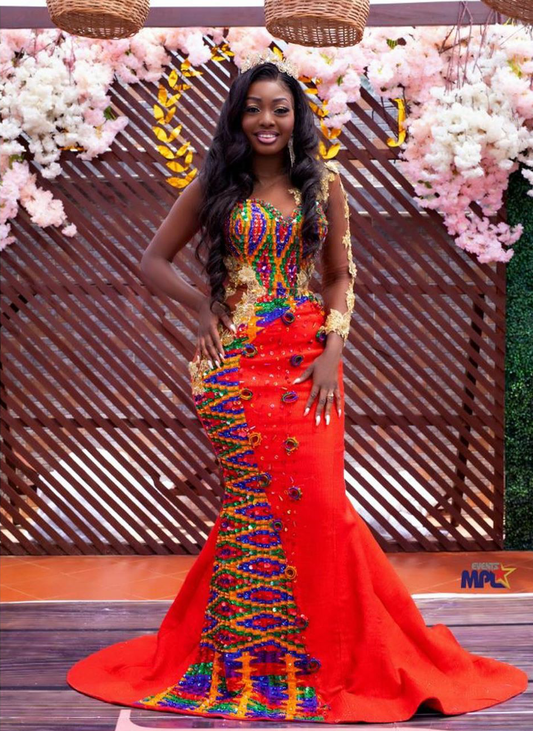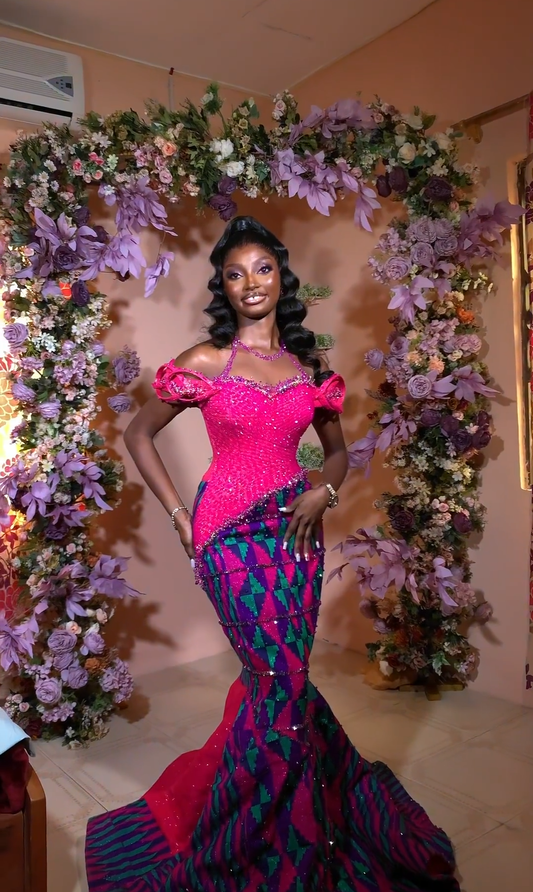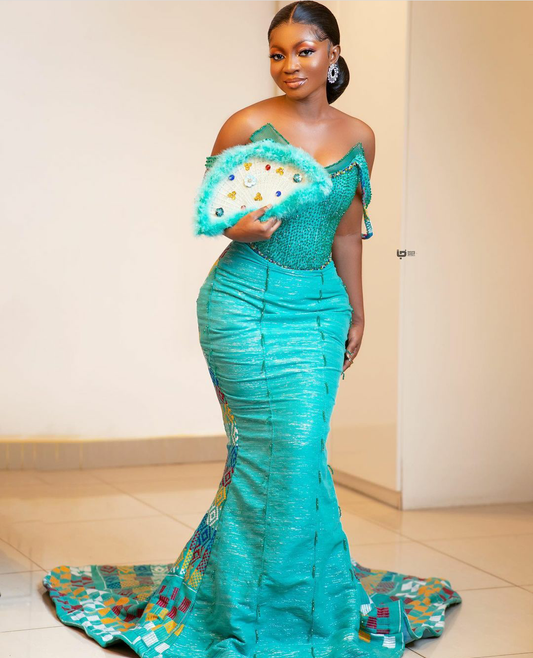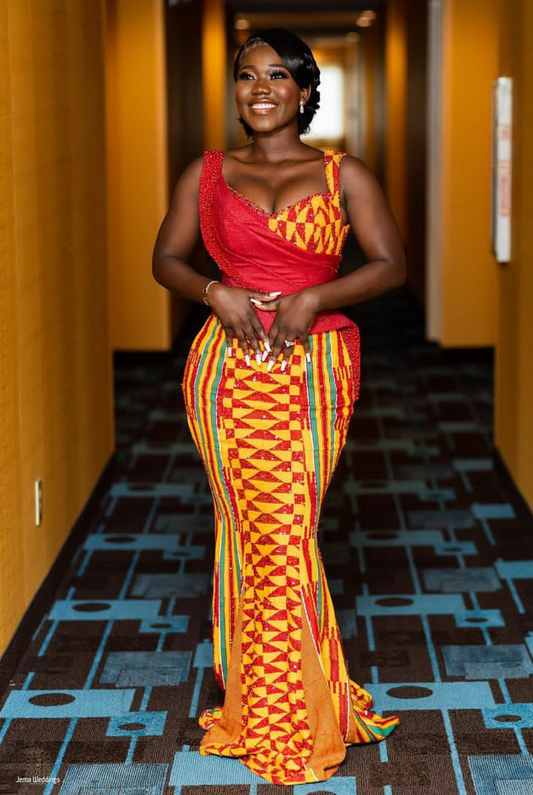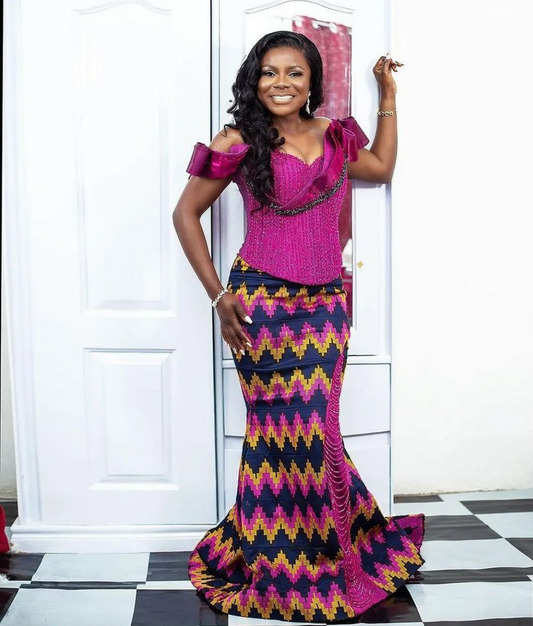The most populous ethnic group in Nigeria is the Hausa. Islamic or Sharia law serves as the foundation for traditional Hausa marriage. The traditional Hausa marriage ritual is complex, rich in cultural traditions, and typically takes several days to complete. When a guy discovers a woman he wants to marry, he must first obtain his parents' approval. After the parents have given their consent, the other marital rites follow suit. These stages include Na Gani Ina so, Sadaki, the wedding or Daura Aure/Shafa Fatiha, and Kai Amariya.
Na Gani Ina so
Na Gani Ina so means "I have found and I love it" in Hausa. The man and his family visit the woman's home at this point to inform her parents of their intention. They also have packs of salt, chocolate, candies, and Kolanuts with them. If the parents of the bride accepted these things, it indicates that they consented to marrying their daughter to the groom's family.
Sadaki
The bride price, often known as the dowry, must be paid at this point. The utmost sum that the groom can afford to pay is the starting point, known as the "Rubu Dinar" in Hausa. A smaller dowry is said to result in a more fortunate marriage, according to Islamic doctrine. To the hearing of all in attendance, the sum of money being paid as bride price is proclaimed. A bride's labor or cash payments made in installments could be accepted as the bride price. The bride price is up to the widow or divorced woman. As for a divorced or a widow, she gets to decide her bride price.
A date will be chosen to begin the wedding preparations as soon as the dowry is paid. One is the day when the lady will get gift boxes (lefe) from the groom's family. The gift boxes contain fashionable clothes, jewelry, shoes, bags, cosmetics, and fragrances. The woman will need these things when she eventually arrives at her husband's home. Along with a group of the groom's aunts and sisters, the groom's family will present these to the bride's family. Another important day is the day when the aunts, friends, and sisters of the bride and groom get together to open the gift boxes—many expensive goods go into making these—and take in the contents. Following that, they typically eat lunch together, strike up a long chat, and get to know both families. The women will decide on a wedding date and the events that will take place throughout the wedding time before the day is over.
Kamu is the first ceremonial celebration, typically held in a private residence. Typically, the bride's aunts use this occasion to counsel and advise the bride. They all grab the microphone and give motivational speeches to the bride and her friends alike. Usually, this is about how the bride should create a nice home, live with her spouse, and have a happy marriage. The next event on the wedding schedule is “Sa Lalle”, or henna; most of the bride's friends and family attend, and it is typically held in her home. Typically, the bride, her friends, and her family decorate their hands and legs during this occasion. Their hands and legs are decorated by drawing beautiful henna designs (similar to a tattoo but this one can be easily cleaned and removed within a few days).
The activities of the main wedding day (Daurin Aure) includes;
Fatiha: only men are allowed to attend this event. The purpose of this ceremony is to formally present the bride and groom as husband and wife. The families and friends of the bride and groom gather to pray and exchange vows. An imam typically leads the gathering and leads the prayer recitations. There is no food served at this event, and no music is played. The men from both families will only pray and tie the knot at this time.
Lunch and Dinner: A few hours following the Fatiha, the bride and husband make their way to the lunch location accompanied by friends. Usually, the purpose of the lunch is to commemorate the formal union of families and friends. Usually that same day, everyone returns home after lunch to change and get ready for dinner. Everything that occurs during lunch is essentially the same during dinner, but the venue and time of the event are different and it happens at night. The celebration begins at around 8 p.m. and lasts until midnight or early in the morning. There will be a ton of dancing, eating, taking pictures, and laughing at this event.
Kai Amarya
The bride is escorted to her husband's house the day following the wedding, where she will be warmly greeted by the groom's family. They transport all of the bride's possessions while singing songs along the road. According to Hausa custom, it is the husband's job to rent an empty house, and the bride's family is in charge of outfitting it.
Marrying Ghana Kente is dedicated to ensuring you have a fabulous Ghana wedding experience. We provide the best quality Kente and luxurious wedding accessories. Shop now at https://mgkente.com/
Looking for love? Why don’t you check out our dating site https://mgdating.com/. Your heartthrob may be a click away.






